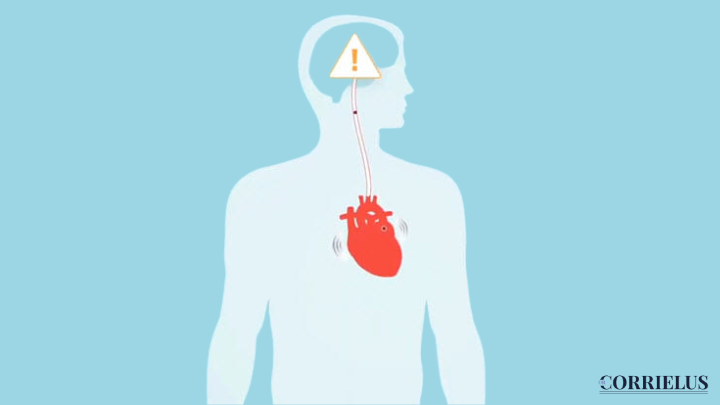Atrial Fibrillation is one of the heart rhythm disorders (arrhythmias) that can be influenced by stress. According to certain studies, your atrial fibrillation symptoms could deteriorate because of stress and mental health problems. Additional health issues could be correlated with high amounts of stress. Your health depends on your ability to manage your stress.
You may be more prone to developing AFib in the first place due to your stress, worry, or depression. However, having AFib can also exacerbate your anxiety and depression.
According to one estimate, 4 out of 10 individuals with AFib also experience anxiety, depression, or memory or cognitive issues. According to studies, that proportion is larger for elderly persons, impacting 6 in 10.
AFib When You Have a Serious Mental Illness
You’re not necessarily more prone to have AFib if you have a more severe mental disease, such as schizophrenia or bipolar disorder. However, heart disease and other health issues linked to lifestyle and other factors are frequently present in patients with severe mental disorders. These two things can coexist because AFib is also the most prevalent kind of arrhythmia.
It might be more difficult for you to take medications that are necessary to reduce your risk of other health issues, such as a potentially fatal stroke if you have both AFib and a serious mental disorder. As a result, those who have AFib and significant mental health issues are more prone to have other, potentially life-threatening consequences. If you require assistance reducing your risk for a stroke or other significant health issues, let your doctor know.
When You Have AFib, How to Get Mental Health Support
To cope on your own, you can test out different strategies to determine whether they work. Although every person is unique, the following suggestions would aid you in controlling stress or anxiety:
- Exercise
- Guidance from your family and friends
- Spending time with your loved ones
- Calming techniques
- Meditation
- Yoga
- Healthy eating
- Sleeping soundly
Inhibit your stress.
Your health and condition may be managed and improved by learning stress management techniques.
Several methods for reducing stress include:
- Meditation
- Yoga
- Calming strategies
- The assistance of family and friends
- Exercise on a regular basis
- A balanced diet
- An optimistic outlook
Consult your doctor if these stress reduction methods aren’t working for you.
Anxiety and Depression
Atrial fibrillation and anxiety and depression have intricate relationships.
According to some studies, those who have atrial fibrillation may be more susceptible to sadness and anxiety.
The intensity of your atrial fibrillation symptoms and your quality of life may suffer if you suffer from depression or anxiety.
At this time, it is unknown if anxiety or depression raises the risk of atrial fibrillation, or if anxiety or depression increases the risk of atrial fibrillation.
Ask your doctor or therapist for assistance if you’ve tried these but are still having trouble. You might require depression treatment if you:
- Stepping back from activities
- Can’t enjoy time with family and friends
- Thinking unfavorable things
- Lots of anguish
- Having difficulty with daily tasks or at work
- Having suicidal thoughts
A word from the doctor
To fully comprehend the intricate connection between atrial fibrillation and related mental health issues, more study is required.
Consult your doctor if you have any depressive or anxious symptoms, such as persistent sorrow or worry, trouble focusing, or a general lack of interest in most activities. He or she might suggest that you seek diagnosis and care from a mental health professional (psychologist or psychiatrist).
If you have a concern regarding your heart health or want to know more, make an appointment with Dr.Sanul Corrielus now!



